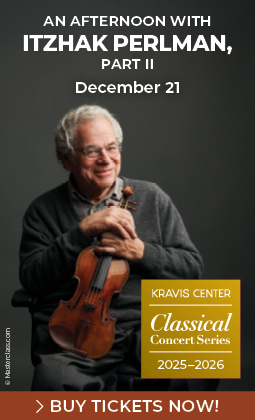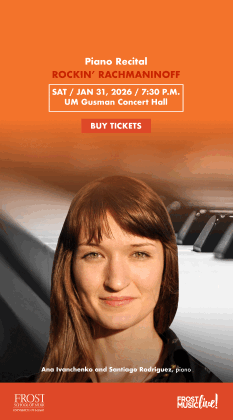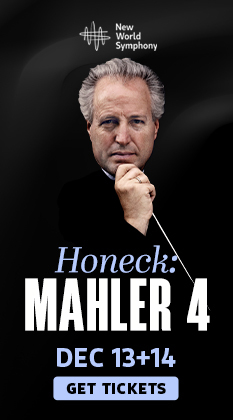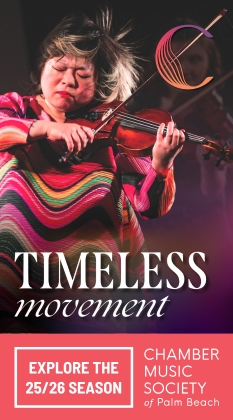Teen pianist Grosvenor requires artistic seasoning
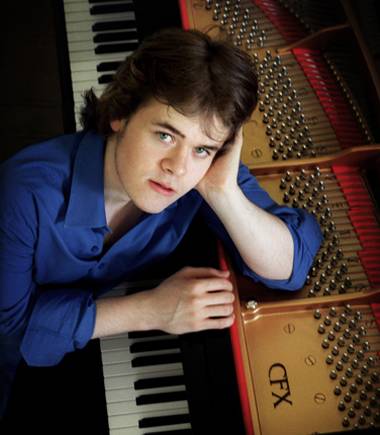
Benjamin Grosvenor made his Miami debut Thursday night.
The British 19-year-old piano sensation Benjamin Grosvenor made his Miami debut Thursday evening, delivering a solid performance that signifies a long career ahead.
Grosvenor came to public attention at the age of eleven, winning the Keyboard Final of the 2004 BBC Young Musician Competition. At thirteen, he made his Carnegie Hall debut, and last year, at nineteen, he performed with the BBC Symphony on the First Night of the BBC Proms in Albert Hall. Belen Jesuit Preparatory School’s Roca Hall was a much more modest setting, but served to bring in a sizable young crowd in addition to the sponsoring Friends of Chamber Music faithful.
Challenged by dampening acoustics and a somewhat dull piano, Grosvenor nevertheless delivered a pleasant, if restrained first half, featuring Bach’s Partita No. 4 in D and Chopin’s Sonata No. 3. His performances revealed a light, immaculate touch, and a preference for the quieter sections of the works. Combined with his tendency to hunch over the keyboard, the overall effect was one of great intimacy, a sensitive artist performing for himself rather than for the audience of several hundred.
In the Bach, Grosvenor relished the slower movements, lingering over each note and its ornamentation. The Chopin’s dynamic contrasts suffered from the muted conditions of the hall, and although Grosvenor plays with intelligence and technical proficiency, it sounded overrefined and understated.
Grosvenor brought a greater range to the showy works on the second half of the program, demonstrating why he is in demand as a concert artist. The opening Andante of Scriabin’s Sonata No. 2 added some fire to Grosvenor’s lovely, rounded tone, never obscuring the melody with the demanding accompaniment. His lightness of touch on the quicksilver passages in the Presto made it easy to forget that this is a tremendously difficult piece, and also gave glimpses of what emotional depths Grosvenor might be guarding.
His rendition of Rachmaninoff’s Étude-tableau, Op. 39, No. 5 furthered that impression with a series of broad dynamic swells and utter control of the mildly dissonant melodic line. In Rachmaninoff’s Lilacs, he conveyed a luscious, floating sound that foreshadowed his Ravel. However, it was Polka de W.R., Rachmaninoff’s demanding arrangement of Franz Behr’s Lachtäubchen, in which Grosvenor really got warmed up. Grosvenor was by turns spritely and playful with a rich polka bass line, and serious, pulling some gravitas out of the crowd-pleaser.
The youngest artist ever to be signed to Decca, Grosvenor has just recorded Ravel’s Gaspard de la nuit, one of the most notoriously difficult piano works ever written. Thursday’s performance of Gaspard was completely mature and technically secure, revealing all of his considerable strengths. His Ondine was fluidly effortless, a spectacular display of clarity and lightness. Le gibet showcased his voicing, defined by timbral contrasts between the bell-like ostinato and the dark colors of the surrounding chords. His Scarbo, the most thrilling work of the program, captured the threateningly grotesque mood from the start with expansive contrasts in the dynamics and attacks. It would have been a bravura performance from someone three times his age.
Despite the fireworks of Scarbo, which has clearly aged in his repertoire well beyond the other works, Grosvenor tends to refine the music; there is no real storm or stress here. While this lack of angst might be refreshing from a teenager, it will be interesting to see how life experience adds depth to his performances in what will certainly be a very long, promising adult career.
Posted in Performances
Leave a Comment
Fri Mar 2, 2012
at 1:06 pm
No Comments


